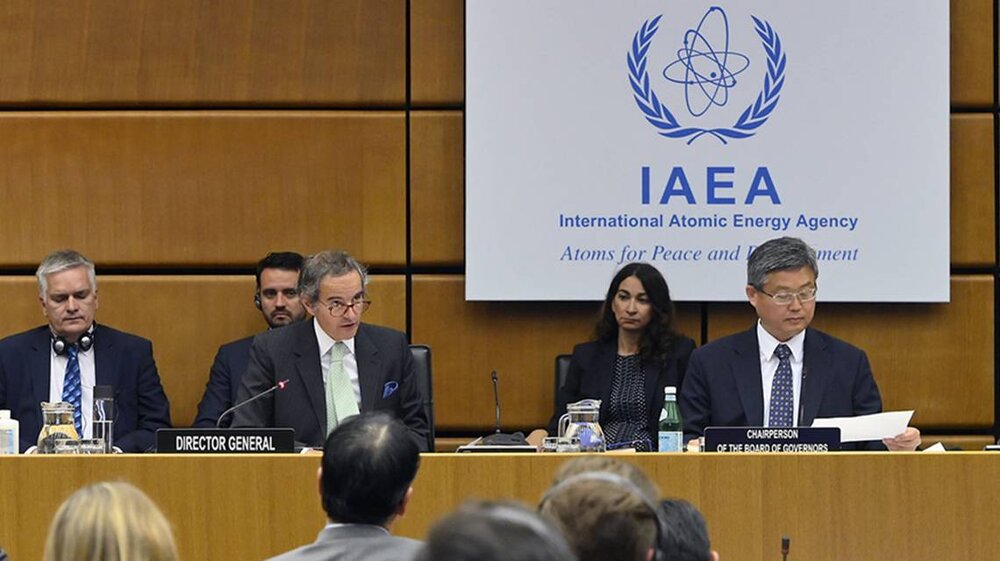Iran vows response as U.S., E3 proceed with resolution

TEHRAN – After more than a week of back-and-forth diplomatic efforts, the United States and its European allies submitted a draft resolution to the UN nuclear watchdog’s Board of Governors that will cast further doubt on the future of the already stalled talks in Vienna over reviving the 2015 Iran nuclear deal.
It has now become crystal clear that Washington and its European allies – France, Germany and the UK (E3)- have no intention of backing off on the draft resolution they jointly submitted to the International Atomic Energy Agency’s Board of Governors. The Russian representative to international organizations in Vienna, Mikhail Ulyanov, announced that Western countries have submitted the draft resolution. “For unknown reasons they believe that a resolution is the best way to address outstanding safeguards issues. Extremely doubtful,” he said on Twitter.
Stephanie Liechtenstein, a Vienna-based journalist covering diplomatic developments, said that “there will be a vote on the resolution submitted by U.S. & E3 to the IAEA Board of Governors either tomorrow (Wednesday) evening or Thursday morning.”
According to the journalist, the resolution is “a mildly-worded draft and there is no mention of the matter being referred to the UN Security Council.”
Iranian officials also noted that the resolution will not be strongly-worded and binding. Mohammad Eslami, the head of the Atomic Energy Organization of Iran (AEOI), said the resolution, if adopted, will not result in the creation of new conditions. “The resolution that some in the Board of Governors are seeking will not impose new conditions. The Agency must stop political influence within it and abide by its charter,” he said in remarks to Al Jazeera.
However, the resolution will not go unanswered by Iran. Iranian officials have said they will respond in kind. How Iran will respond remains to be seen. But Iran has technical options to respond, Kazem Gharibabadi, the former Iranian representative to the IAEA, said in an interview with state TV.
Gharibabadi, now Iran’s human rights chief, called on the IAEA to stop its politically motivated behaviors.
Despite downplaying the resolution, Iran signified a willingness to respond while doubling down on its previous positions regarding the talks in Vienna over reviving the 2015 nuclear deal, officially known as the Joint Comprehensive Plan of Action (JCPOA).
As for the response, Iran indicated it has many options to respond ranging from raising the level of uranium enrichment to blocking the IAEA access to its cameras installed at Iran’s nuclear facilities. Iranian Foreign Minister Hossein Amir Abdollahian said those who pushed for resolution will be responsible for the consequences.
Iran also noted that it will not change its position on the Vienna talks. In a meeting with a number of religious and political leaders as well as officials of Lebanese and Palestinian groups, Amir Abdollahian underscored that Iran will not relinquish the rights of the Iranian people in the negotiations, nor will it ignore the rights of the Muslim people of Palestine with regard to the Palestinian issue, according to the Iranian Foreign Ministry.
The remarks came amid speculations by some pundits that the resolution is aimed, among other things, at sending a signal of Western defiance regarding the Vienna talks. If that’s the case, then Iran is unlikely to change its negotiating position just because the U.S. and the E3 adopted a resolution Iran views unjustifiable and unprovoked. The resolution, however, may set the whole negotiations process on a dangerous path because its adoption could be viewed by Iran as a signal that the West is not serious about reaching a good, reliable, and lasting agreement in Vienna.
Leave a Comment